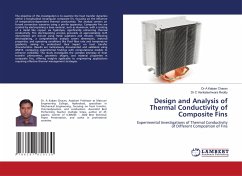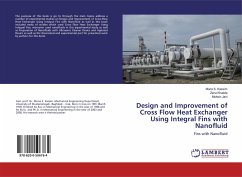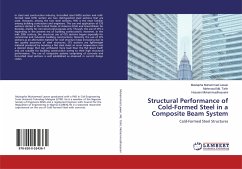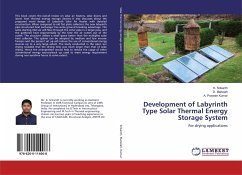The objective of this investigation is to examine the heat transfer dynamics within a longitudinal rectangular composite fin, focusing on the influence of temperature-dependent thermal conductivity. The analysis centers on forced convection scenarios using a pin-fin apparatus. Composite fins are created by electroplating a base material, such as aluminum, with a coating of a metal like copper via hydrolysis, significantly enhancing thermal conductivity. The electroplating process proceeds at approximately 0.25 micrometers per minute using metal sulphates and nitrates. Following electroplating, a comprehensive analysis covers dimensions, material properties, and operating conditions like fluid flow rate and temperature gradients, aiming to understand their impact on heat transfer characteristics. Results are meticulously documented and validated using ANSYS, comparing experimental findings with computational models to enhance credibility. This study investigates the complex interplay of heat transfer phenomena, geometric shapes, and material properties in composite fins, offering insights applicable to engineering applications requiring effective thermal management strategies.
Bitte wählen Sie Ihr Anliegen aus.
Rechnungen
Retourenschein anfordern
Bestellstatus
Storno








